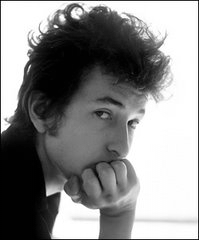Anyone who knows me knows that Paul Thomas Anderson is my favorite filmmaker. So, after five years of waiting, here is his new film. It is an amazing picture... until the last two minutes. The ending literally made me go "huh?" - it feels so out of place with the rest of the picture, but it seems like a minor complaint when the rest of the film is so brilliant. Between this and No Country for Old Men, it feels like this is The Year of Bad Endings. Perhaps I need to focus a little less on these things, but for me the ending is one of the most important parts of a film. It is supposed to send you out, into the night and away from the theater, with a confident conclusion that both sums up the film and leaves it open for thought by the audience. I don't know, maybe another viewing will put it all into focus a little more. Well, enough with the ending, lets get to what I like about the film, which is a lot.
The movie starts out without any dialogue, for the entire 10-15 minutes of the opening. It's brilliantly shot and edited, and it serves as a sort of prologue for the story. It's wonderfully hypnotic and really draws you into the film.
Daniel Day-Lewis is great, very frightening yet strangely sympathetic. Paul Dano is equally good.
But for someone who's been following Anderson's work since the beginning, it's amazing to see what the rest of Anderson's (technical) team have achieved here. Robert Elswit has been DP on all of Anderson's films, and here he has the balls to light everything terrifically dark - in some scenes almost to the point of not being able to discern the characters from the darkness. Anderson, a big fan of fluid camera movement in his films, still uses the steadicam for parts of the film, but quite a bit of the movie is filmed with static shots (with dolly moves to heighten emotion). It's not much of a departure, however - P.T.'s trademark precise camera movement is still highly evident.
As always for an Anderson picture, the dialogue is great. Dialogue has always been one of Anderson's strengths. It's memorable without being show-offy, he reveals character traits and exposition without being too obvious, and he knows just when to end a scene.
There are many memorable lines and a few great monologues, and some dark comedy creeps in here and there. It sometimes works and it sometimes doesn't, but it adds another layer to the film and keeps it interesting. The one big misstep is the darkly comic ending, which may have worked well in another film, but in this one it comes right after a big dramatic setpiece.... I don't know, it just seemed ill-timed and ill-executed to me.
Overall, it's a great movie - one of the finest of the year. It's funny to me that this movie is getting more accolades than Anderson's other movies. It's a good film, but it's no better than Boogie Nights or especially Magnolia. I think it's just that this is an easier film for the Academy to get their heads around: it's a period piece, and it's fairly straightforward. Regardless, it's a must-see, for fans of P.T. or anyone else.
Subscribe to:
Post Comments (Atom)


No comments:
Post a Comment